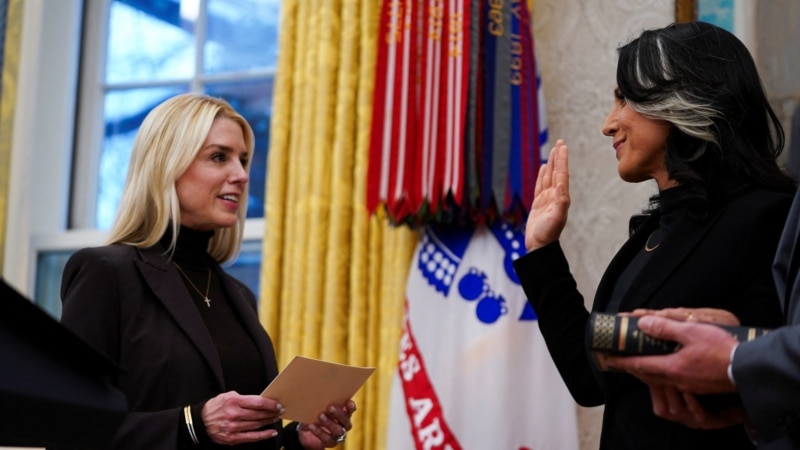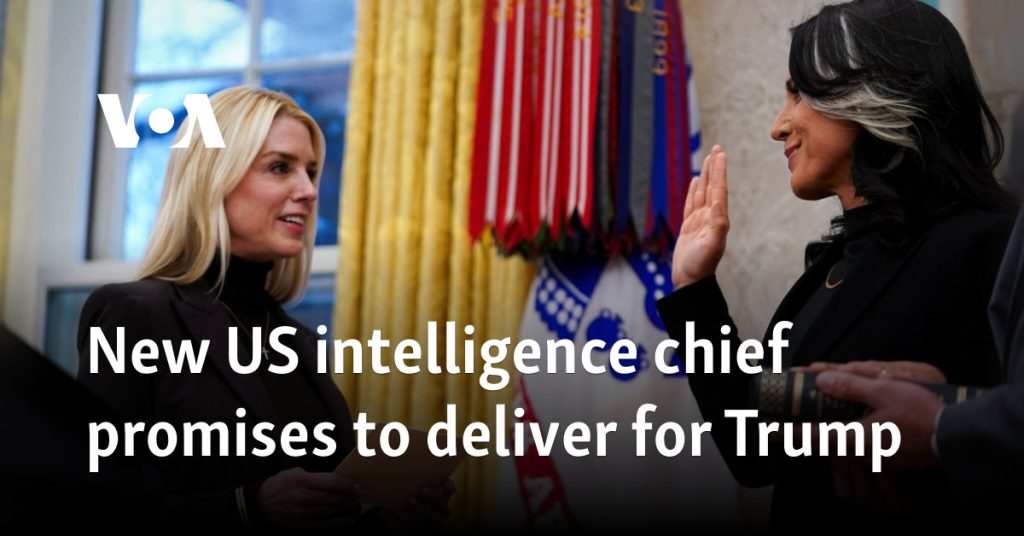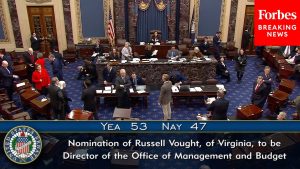
U.S. President Donald Trump’s effort to overhaul the country’s intelligence apparatus appears set to move forward, with lawmakers confirming Tulsi Gabbard as the nation’s next director of national intelligence.
The Senate voted 52-48 in favor of Gabbard on Wednesday, narrowly rejecting concerns about her experience and past statements on leaks of classified intelligence and other matters.
Following the vote, Gabbard told Trump she would “help fulfill that mandate that the American people delivered to you very clearly in this election.”
“The American people have very little trust in the intelligence community, largely because they’ve seen the weaponization and politicization of an entity that is supposed to be purely focused on ensuring our national security,” she said moments after being sworn in during a ceremony at the White House’s Oval Office.
“It is truly humbling to be in this position to serve in your administration, help to rebuild that trust and ultimately to keep the American people safe,” Gabbard said, praising the president for “ensuring that war is the last resort, not the first.”
Gabbard got support from every Republican senator except for former Majority Leader Mitch McConnell, who joined Democrats in opposing her confirmation.
Last-minute pleas by Senate Democrats to their Republican colleagues to reject Gabbard’s nomination, however, had no impact.
“We simply cannot, in good conscience, trust our most classified secrets to someone who echoes Russian propaganda and falls for conspiracy theories,” said Minority Leader Chuck Schumer, addressing lawmakers before Wednesday’s vote.
Schumer also alleged that most Republicans secretly agree.
“If we had a secret ballot, Gabbard might get 10 votes,” he said. “People know. That’s why they raise so many questions. But Donald Trump and Elon Musk evidently threaten them, and they’re changing their view.”
Trump selected Gabbard in November, praising her “fearless spirit.”
But the former Democratic representative from the state of Hawaii and one-time Democratic presidential candidate faced criticism from Democrats and some Republicans. Gabbard’s nomination to serve as director of national intelligence advanced to the full Senate by a 9-8 party-line vote in the Senate Intelligence Committee.
“It’s fair to say Ms. Gabbard’s nomination has generated a bit more interest and attention than do most nominees before this committee,” Senate Intelligence Committee Chairman Tom Cotton, a Republican, acknowledged during Gabbard’s confirmation hearing late last month.
During the hearing, Gabbard was questioned repeatedly by Republicans and Democrats about Edward Snowden, a former National Security Agency contractor accused of leaking thousands of classified documents before ultimately fleeing to Russia, and specifically about legislation she introduced to pardon him.
Each time they asked whether she considered Snowden a traitor, Gabbard declined to answer.
“Senator, my heart is with my commitment to our Constitution and our nation’s security,” Gabbard said during once exchange with Republican Senator James Lankford.
Senators also questioned Gabbard about a 2017 trip to Syria, during which she met with then-Syrian President Bashar al-Assad, despite allegations he had used chemical weapons against civilians, and about her comments about Russia’s February 2022 invasion of Ukraine.
“I continue to have significant concerns about your judgment and your qualifications,” said Warner, a Democrat. “Repeatedly, you have excused our adversaries’ worst actions, [and] instead often blame them on the United States.”
Gabbard, however, managed to find common ground with the committee’s Republican senators, winning over Susan Collins and Todd Young.
Young also shared a letter from Gabbard in which she pledged to hold U.S. intelligence employees and contractors accountable for intelligence leaks and to “not advocate for any protections which should only be extended to lawful and legitimate whistleblowers.”
Gabbard further promised to not make any recommendation “regarding the legal standing of Edward Snowden” to the U.S. attorney general or to Trump.
And she pledged to support the use of warrantless surveillance capabilities despite her opposition to the program while she was a lawmaker.
VOA’s Congressional Correspondent Katherine Gypson and White House Bureau Chief Patsy Widakuswara contributed to this report.








